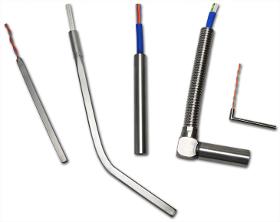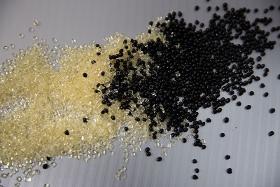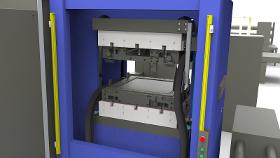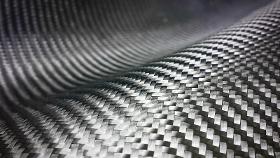- europages
- >
- COMPANIES - SUPPLIERS - SERVICE PROVIDERS
- >
- thermoplastic moulding
Results for
Thermoplastic moulding - Import export

FRIEDR. FREEK GMBH
Germany
Occasionally also these terms are used for cartridge heates: heating cartridge, insertion heaters, spiral cartridge heaters. As a rule cartridge heaters consist of a cylindrical stainless steel tube and thus provide a high corrosion prevention. There is a heating wire inside which is wound onto a ceramic core. The number of coils varies depending on the power. In order to avoid a short-circuit, the cartridge heater is filled with magnesium oxide and compressed afterwards. Highly compacted they reach a surface watt density of up to 50 W/cm² and withstand highest stress. In the plastics industry cartridge heaters are used in hot runners in order to temper thermoplasts during injection moulding processes. Other areas of applications for process heat are e. g. packaging, diecasting or continuous casting in which zinc or aluminium are processed. Further applications are to be found in mechanical as well as medical and laboratory engineering.
Request for a quote
OPTIMEL SCHMELZGUSSTECHNIK GMBH
Germany
At OptiMel, you get everything from a single source to optimally use low pressure molding technology for high-quality electronics encapsulation. Thermoplastic hot melts are used as encapsulation material. Due to their range of properties, amorphous thermoplastic polyamide granules are predominantly used in low pressure molding. Thermoplastic polyolefins are also available for special applications, which are used whenever sufficient adhesion cannot be achieved with the preferred polyamides on the substrates used (e.g. cross-linked polyethylene). Due to different raw material combinations, the range of properties of these hot melt granules varies in terms of mechanical strength, operating temperatures and resistance to various media. The hot melt molding materials combine a viscosity spectrum that is favorable for the low-pressure process with a wide operating temperature range (-50 / + 150°C) and, in some cases, very good adhesive properties. Depending on the material
Request for a quote
SIEMPELKAMP MASCHINENFABRIK GMBH
Germany
A press for all processes Beside the pressing systems for industrial production, Siempelkamp manufactures laboratory press systems – both “try-out” presses for laboratoryscale tests with a starting pressing force of 150 t as well as presses for “fullscale testing”. The laboratory press systems are designed for maximum exibility. With it, all processes of composite production can be investigated. For example, it can be investigated whether press technology is an economic alternative for “autoclave” processes. All processes SMC with glass ber or carbon ber RTM PCM Organo-sheet consolidation Thermoplast forming Hybrid forming Integrated molding and joining of hybrid materials All control methods Force control with position monitoring Position control with force monitoring Each process step can be individually dened and programmed: All relevant process data are recorded and displayed.
Request for a quote
SIEMPELKAMP MASCHINENFABRIK GMBH
Germany
Fiber-reinforced composites are in demand in all high-end industries in which light weight and at the same time high durability under dynamic load ensure competitive advantages Efficient and reliable press technology for fibre composite plants Whether glass fibre reinforced plastic (GRP) or carbon fibre reinforced plastic (CFRP): The valuable material is mainly used in application fields where weight reduction, fuel consumption,anti-corrosion characteristics and other stress resistency feauters are in focus. The name Siempelkamp also stands for solid and precise technologies in these presses and handling systems as well as for high flexibility due to its suitability for all composite applications such as sheet molding compounds with glass or carbon fibers (SMC), prepreg compression molding with short, long or continuous fibers (PCM), resin transfer molding (RTM), and thermoplastic forming.
Request for a quote
HEUTE + COMP. GMBH + CO
Germany
Coatings made of PFA and PVDF fluorine-based thermoplastics provide safe protection against corrosion even on exposure to aggressive media. Because its molecular structure resembles that of PTFE, PFA is almost universally resistant to chemicals. Other special features of PFA linings are their wide range of operating temperatures and easy cleaning due to the material’s non-adhesive nature. In many applications, this makes it possible to replace stainless steel with a raw material which is not only much more economical but also easier to process. Because coatings are applied in a thermoplastic transfer-moulding process, it is necessary to account for certain design aspects which our team will gladly discuss with you in advance.
Request for a quoteDo you sell or make similar products?
Sign up to europages and have your products listed
Results for
Thermoplastic moulding - Import exportNumber of results
5 ProductsCompany type